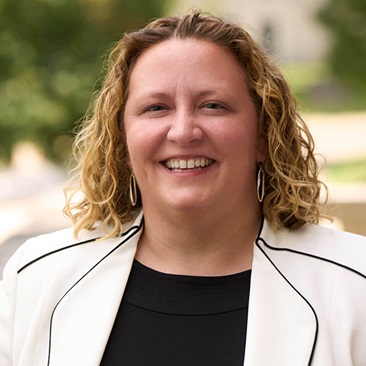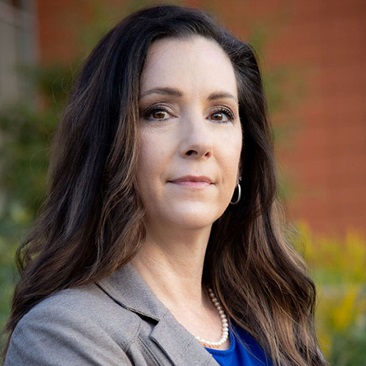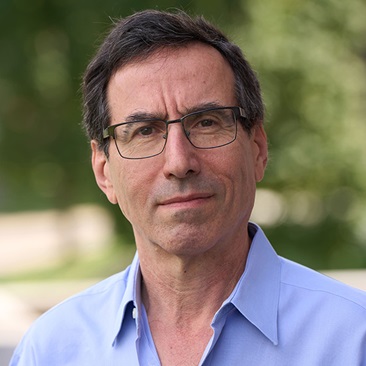Maxwell School Welcomes New Faculty, Department Chairs for 2022-23
August 23, 2022
The Maxwell School welcomes several new faculty members and announces the appointment of three department chairs.
The new chairs are as follows:
Peng Gao, Chair, Geography and the Environment
Gao, who joined the Maxwell School in 2005, is professor of geography and the environment. He focuses on physical geography, specializing in river dynamics and fluvial systems as well as geospatial-based urban studies. Recently, he has researched morphodynamical processes of braided and meandering rivers in China’s Qinghai-Tibet Plateau and the socioeconomic equality in various urban managements. His work has been published in numerous journals, including Geomorphology, Water Resources Research, Earth Surface Processes and Landforms, and Catena. Gao earned a Ph.D. from the University of Buffalo in 2003.
Colleen Heflin, Associate Dean and Chair, Public Administration and International Affairs
Heflin is professor of public administration and international affairs and senior research associate in the Center for Policy Research and the Lerner Center for Public Health Promotion. She researches food insecurity, nutrition and welfare policy, as well as the well-being of vulnerable populations. Heflin has published over 70 research articles and her work has appeared in leading journals such as the American Sociological Review, Social Problems, Health Affairs, Medical Care, and the Journal of Policy Analysis and Management. She has received funding from the National Institutes of Health, U.S. Department of Agriculture, the Robert Wood Johnson Foundation and the Russell Sage Foundation. She received a Ph.D. from the University of Michigan in 2002.
Devashish Mitra, Chair, Economics
Mitra is professor of economics, Gerald B. and Daphna Cramer Professor of Global Affairs and senior research associate in the Moynihan Institute of Global Affairs. He served as chair of economics previously, from 2006-10. He researches international trade, political economy, development economics and the Indian economy. His research has been published in top general-interest and field journals. He has served as an editor and on the editorial boards of numerous scholarly publications, including Economics & Politics, Journal of International Economics, Journal of Development Economics and European Economic Review. Additionally, he has written opinion pieces and has been quoted in numerous media outlets, including a July 2022 Bloomberg article exploring how changes in government policies on military recruitment led to violent protests, despite a recent announcement of the government’s plan to create a million jobs. Mitra received a Ph.D. from Columbia University in 1996.
The following have joined the Maxwell faculty, full-time:
Richard Barton ’16 M.A. (PSc) is assistant teaching professor of public administration and international affairs. His research focuses on the American political economy and legislative institutions. His published articles include “Upending the New Deal Regulatory Regime: Democratic Party Position Change on Financial Regulation” and “A Primary Threat: How Ideological Primary Challengers Exacerbate Polarization in Bill Sponsorship.” He has published op-eds in The Washington Post and CNN, among other outlets. His research was supported by the Dirksen Congressional Center in 2020. He is a research fellow with the Scholars Strategy Network and the Unite America Institute, where he conducts research and thought leadership on the effects of primaries and alternative electoral institutions on governance. Barton earned a Ph.D. from Cornell University in 2022.
Aaron Benanav is assistant professor of sociology and senior research associate for the Autonomous Systems Policy Institute. His work has been published in numerous journals, and he authored the book “Automation and the Future of Work” (Verso Books, 2020). He serves on the editorial board of International Labor and Working Class History and has received numerous honors, including a 2021 Scripts grant, the University of Chicago Feminist Forum Professor Award and the University of Chicago Society of Fellows Harper-Schmidt Fellowship. Prior to joining Syracuse, he was a post-doctoral researcher for Humboldt Universität zu Berlin and a collegiate assistant professor at the University of Chicago. He received a Ph.D. from the University of California, Los Angeles in 2015.
Omar Cheta is assistant professor of history. He specializes in the social history of the modern Middle East and the Ottoman Empire, with a focus on the history of law and capitalism. He has received research fellowships and grants from the National Endowment for the Humanities, the American Philosophical Society, the Social Science Research Council, the Mellon Foundation and the New York University Center for the Humanities. Cheta is the recipient of the Malcolm H. Kerr Dissertation Award in the Social Sciences and was a founding member of the Economic and Business History Research Center in Cairo. Publications include articles and reviews in International Journal of Middle East Studies, History Compass and Review of Middle East Studies, among others. Before joining Syracuse, he served as an assistant professor of Middle Eastern and historical studies at Bard College, Annandale-on-Hudson. He received a Ph.D. from New York University in 2014.
Selina Gallo-Cruz is associate professor of sociology. She researches culture, conflict, gender, global change, NGOs, nonviolence, social movements and theory. She is author of “Political Invisibility and Mobilization: Women Against State Violence (Routledge, 2021), winner of the American Sociological Association’s Peace, War and Social Conflict section’s Outstanding Book Award. Prior to joining Syracuse, she served as an associate professor and assistant professor at the College of the Holy Cross and as a visiting assistant professor at Emory University. In 2021, she was named a Fulbright-Tampere University Scholar and served as a Democracy Visiting Fellow at the Ash Center at the Harvard Kennedy School. She has also been a visiting scholar at The University of Notre Dame’s Kroc Institute for International Peace Studies, Brandeis University Women’s Studies Research Center, and at the University of New Mexico, Albuquerque. She received a Ph.D. from Emory University in 2012.
Joss Greene is assistant professor of sociology. He researches gender, race and punishment with a focus on transgender people's existence and resistance in the criminal justice system. His work has been published in journals such as Social Problems and Annual Review of Criminology. Awards and fellowships include the Center for Engaged Scholarship Dissertation Fellowship and the SSSP Arlene Kaplan Daniels Paper Award for the best paper on women and social justice. Prior to joining Syracuse, he served as an early career fellow in sociology at Columbia University, where he earned a Ph.D. in 2021.
Vivian Ike is an assistant teaching professor in the international relations undergraduate program, where she teaches classes in global governance including Introduction to Research Methods, Model United Nations and Global Environmental Politics. Ike researches international environmental politics and climate change policy as well as environmental health, security studies and research methodology. Her work has been published in the journals, Politics and Policy and International Social Science Review. A chapter she wrote about the dangers of corporate power concerning climate change is scheduled to be published in Energy Resource Conflict in 2023. Prior to joining Syracuse, she worked at Northern Arizona University as an instructor and graduate teaching scholar. Ike earned a Ph.D. from Northern Arizona University in 2021.
Lionel C. Johnson is professor of practice of public administration and international affairs. He has nearly 40 years of experience in international business, public policy and economic development. Johnson is president of the Pacific Pension and Investment Institute. He also served as senior vice president of the Initiative for Global Development, vice president of Turkey, Middle East, and North Africa Affairs at the Chamber of Commerce of the United States and senior vice president of public affairs at Fleishman-Hillard. He was a member of the U.S. Foreign Service and served as assistant to three secretaries of state. He also served in the Clinton administration as deputy assistant secretary of the treasury. He is a member of several boards, including the RAND Corp., the National Democratic Institute for International Affairs and Foreign Policy for America. He also served on the board of the Truman National Security Project, Guilford College and the Corporate Council on Africa. He earned a B.A. in political science from Rutgers University.
Minju Kim is assistant professor of political science. She studies bureaucrats as individuals in domestic and international institutions. Her book project, titled, “The Forging of Bureaucratic Partisanship: Evidence from U.S. Foreign Policy,” examines how institutional designs affect the behavior of bureaucrats and how the implementation of foreign policy by bureaucrats shapes the way the government responds to globalization. Her work has been supported by the Center for International Social Science Research at the University of Chicago and the Stigler Center at the Booth School of Business, among others. Before joining Syracuse University, Kim was a postdoctoral fellow at the Center for Commerce and Diplomacy in the University of California, San Diego’s School of Global Policy and Strategy. She earned a Ph.D. from the University of Chicago in 2021.
Aaron Luedtke is assistant professor of history. His research is at the intersection of Native American history, Indigenous studies and early American history with a focus on the 19th century. Prior to joining Syracuse, he taught courses for Alma College, St. Clair County Community College and Michigan State University, where he served as a teaching assistant. He also served as a research fellow at Michigan’s newly formed center for Research for Indigenous Social Action and Equity (RISE). He earned a Ph.D. from Michigan State University in 2021.
Kyrstin Mallon Andrews is assistant professor of anthropology. Her research focuses on medical and environmental anthropology, the Caribbean, maritime studies, fishing, multispecies, environmental governance, conservation, risk and injury, and the Dominican Republic. She is working on a book, “Crosscurrents of Health: Understandings of Risk, Environment, and Identity in the Dominican Republic” and has published papers in journals including Medical Anthropology Quarterly. Mallon Andrews has received honors for her writing, including the Curl Essay Prize from the Royal Anthropological Institute for the 2020 paper, “The Color of Seawater: Color Perception and Environmental Change in Dominican Seascapes,” which is forthcoming in the Journal of the Royal Anthropological Institute. Prior to joining Syracuse, she was a research consultant for the Nippon Foundation Ocean Nexus Center and a visiting assistant professor of anthropology at Miami University. She earned a Ph.D. from the University of California, Irvine in 2021.
Thomas Pearson is assistant professor of economics who researches labor and development. He previously served as an instructor, teaching fellow and research assistant at Boston University and as a research associate in Indiana University’s Lilly Family School of Philanthropy. He also served in the Peace Corps in Nicaragua. His work has been supported by the Russell Sage Foundation and Boston University’s Initiative on Cities and its Institute of Economic Development. He was named teaching fellow of the year in the Economics Department at Boston University, where he was also awarded a graduate student fellowship. He earned a Ph.D. from Boston University in May 2022.
Gregory Smith is assistant professor of political science. His research focuses on the domestic determinants of U.S. foreign policy and changes in the effects of coercive policy tools–the latter of which is the subject of his current book project, tentatively titled “Power Today is not Power Tomorrow: The Dynamic Effect of Coercive Policies.” His peer-reviewed research has been published in International Organization. He was awarded a Presidential Fellowship at The Ohio State University and has received research support from the Charles Koch Foundation. Prior to joining Syracuse, he held postdoctoral fellowships at The John Sloan Dickey Center for International Understanding at Dartmouth College and the Department of Political Science at Duke University. Smith earned a Ph.D. from The Ohio State University in 2020.
Lauren Woodard is assistant professor of anthropology. Her research focuses on migration, processes of racialization, borders, settler colonialism, political anthropology, climate change, Russia and Kazakhstan. Her research has been supported by the Kennan Institute Title VIII Research Fellowship, the Wenner-Gren Dissertation Fellowship, and with a Fulbright research grant to Russia. Prior to joining Syracuse, she was a postdoctoral associate in Russian, East European, and Eurasian studies and lecturer in anthropology at Yale University. Woodard earned a Ph.D. from the University of Massachusetts Amherst in 2019.
Published in the Fall 2022 issue of the Maxwell Perspective
Related News
School News

Dec 2, 2025
School News

Oct 13, 2025

